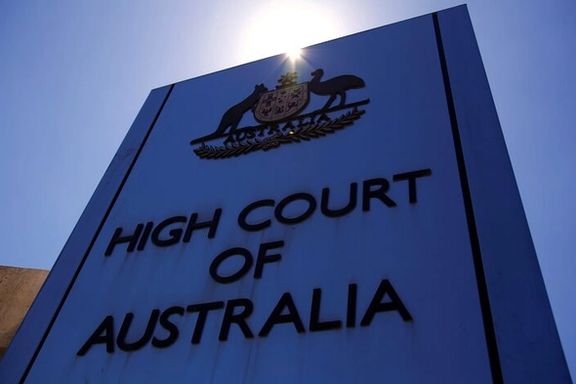Australian High Court Upholds Detention of Iranian Asylum Seeker

Australia’s High Court has ruled against the release of an Iranian asylum seeker, who has been in immigration detention since he resisted deportation in 2018.

Australia’s High Court has ruled against the release of an Iranian asylum seeker, who has been in immigration detention since he resisted deportation in 2018.
Identified only as ASF17, the Iranian man argued that his detention was punitive.
He has also claimed that deportation would pose risks due to his sexual orientation and that he feared indefinite detention.
The Iranian man’s lawyers had hoped to use a precedent involving another asylum seeker – a Rohingya man. That ruling found that the indefinite immigration detention for people with no reasonable prospect of deportation was unlawful.
In ASF17’s case, the court ruled that since there is a "real prospect of removal" his detention was lawful.
Australia’s High Court seemingly differentiated ASF17's case based on his non-cooperation.
The court stated that ASF17's return to Iran could be facilitated if he agreed to cooperate with the process of obtaining necessary travel documents from Iranian authorities.
"He has decided not to cooperate. He has the capacity to change his mind. He chooses not to do so," the justices noted, unanimously agreeing that his detention remains lawful under such circumstances.
Australia’s Immigration Minister Andrew Giles supported the court's decision, emphasizing that the government had vigorously defended its stance.
He highlighted the case's implications for broader immigration policies, stating, "We welcome today’s unanimous decision of the Court, which has found that individuals who are not cooperating with their own removal are able to remain in immigration detention until they are removed from Australia."
Australia has a policy of mandatory detention for all unauthorized arrivals. The policy applies to those who arrive without a valid visa, including asylum seekers who often resort to dangerous sea journeys arranged by smugglers.
Once intercepted, individuals are typically placed in immigration detention centers while their refugee claims are processed. This process can be lengthy, sometimes lasting for years, which often results in significant mental and physical health issues among detainees.